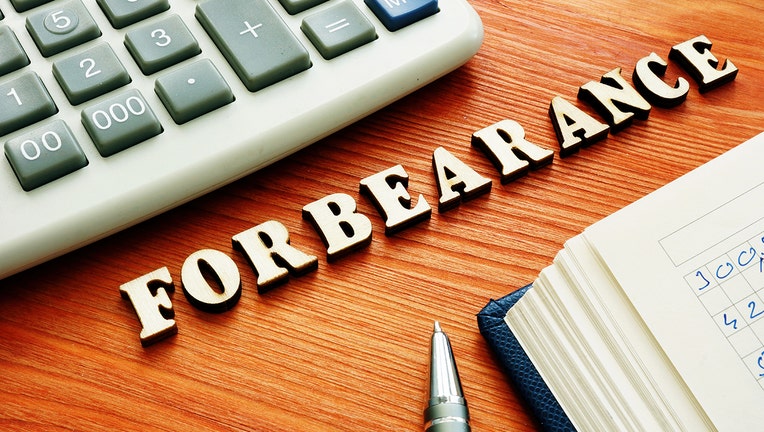What happens after mortgage forbearance ends? Here's what you need to know

Millions of homeowners will be exiting COVID-19-related mortgage forbearance over the next few months. It’s important to know what to expect and what steps you can take next. (iStock)
With the passage of the CARES Act, the federal government provided mortgage relief to millions of homeowners by allowing them to enter mortgage forbearance and temporarily pause their monthly payments due to financial hardship from the COVID-19 pandemic.
One year later, 2.72 million homeowners are still actively in the forbearance period. Millions of homeowners have already left forbearance, and many more will be over the next several months. It’s important to know what you should expect when your mortgage payments resume.
You can learn about loan servicers and what your home loan options are by visiting a multi-lender marketplace like Credible.
BIDEN EXTENDS FORECLOSURE MORATORIUMS — WHAT TO DO IF YOU NEED MORTGAGE HELP
What happens after mortgage forbearance ends?
Homeowners who entered mortgage forbearance under the federal relief efforts are limited to anywhere from 12 to 18 months of payment deferral, depending on when they started their forbearance period and what type of home loan they have. As a result, many homeowners will be coming out of forbearance in early 2021.
Under the provisions of the CARES Act, you won’t have to repay your excused monthly mortgage payments in a lump sum right away. Instead, your loan servicer can require forbearance repayment in one of the following ways:
- Require borrowers to repay past due mortgage payments within 6-12 months of the forbearance period ending (six months for federally-backed mortgage loans and 12 for Fannie Mae or Freddie Mac loans)
- Extend the mortgage term and add excused payments onto the back end of the mortgage
- Extend the mortgage term to 30 years (or 40 for Fannie Mae and Freddie Mac loans) and recalculate the monthly mortgage payment to be the same as or lower than it was before forbearance
If your mortgage forbearance is ending soon, and you’re considering refinancing your home loan, visit Credible to get in touch with an experienced loan officer and get your mortgage questions answered. These mortgage experts can help you decide whether a refinance is the right choice for you.
WHAT TO DO IF YOU FALL BEHIND ON MORTGAGE PAYMENTS
Can I extend my mortgage forbearance?
Depending on your personal finance situation, you may be able to extend your current mortgage forbearance period.
Under federal mortgage relief, homeowners can request a forbearance extension after their initial 180-day period by an additional 180 days. After that, mortgages backed by Fannie Mae or Freddie Mac are eligible for an additional three-month forbearance extension, while those backed by a federal government agency are eligible for two additional three-month extensions.
If you have a private home loan not a part of the federal relief program, you may still be able to extend for forbearance, but you’ll have to contact your mortgage lender to find out. You can also take a look at other loan options, especially if you think you may want to refinance your mortgage, by visiting Credible to compare rates from multiple lenders all in one place.
PART OF A FORBEARANCE OR DEFERMENT PROGRAM? HERE'S WHAT TO LOOK FOR ON YOUR CREDIT REPORT
Does mortgage forbearance affect refinancing?
Homeowners generally can’t refinance while their mortgage is still in forbearance. However, you might be able to refinance your mortgage after your forbearance period ends and take advantage of a lower interest rate, which could lower your monthly mortgage payment.
Under a recent policy by the Federal Housing Finance Agency, those with mortgages backed by Fannie Mae and Freddie Mac may refinance once they’ve made three consecutive mortgage payments after their forbearance period ends.
If your forbearance is ending soon or has already ended, and you’re considering refinancing, you can start exploring your options by visiting Credible to compare rates and lenders.
IF YOU'RE LOOKING TO REFINANCE YOUR MORTGAGE, AVOID THESE ROADBLOCKS
Should I refinance my mortgage after forbearance?
Millions of people have completed mortgage refinances over the past year, due largely in part to interest rates dropping after the onset of the COVID-19 pandemic. Once your mortgage forbearance ends, you could save a significant amount in interest and lower your monthly payment by refinancing your mortgage.
It’s important to note, however, that refinancing isn’t for everyone. Those with poor credit likely won’t be able to get a competitive refinance rate, and may not qualify for a mortgage refinance. And because of the costs associated with refinancing, you should only do so if you plan to stay in your home long enough to make the savings worth it.
You can visit Credible to find out what refinance rates you might be eligible for based on your financial situation.
CAN’T PAY YOUR MORTGAGE DURING CORONAVIRUS? TRY THIS NOW
The bottom line
Millions of homeowners will be leaving COVID-19-related mortgage forbearance over the next several months. And with interest rates still low, it could be a great opportunity to refinance your mortgage.
Credible’s free online tool can help you crunch the numbers and compare rates to see just how much you could save on monthly mortgage payments.
CORONAVIRUS MORTGAGE RELIEF OPTIONS YOU SHOULD CONSIDER IF MONEY'S TIGHT

